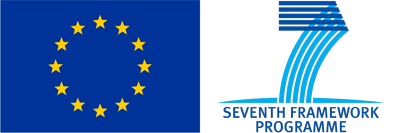Home »
Research Institutions
Research Institutions | Recommendations
1. Develop an explicit institutional research data strategy with open access as the default position
Consultation and collaboration with the research community is of critical importance in understanding their needs and in developing the necessary infrastructure and services. The establishment of committees within institutions that will work in close collaboration with funders and the research communities will alleviate significant pressure from researchers and accommodate disciplinary practices.
2. Actively pursue collaborations between and within institutions in fostering a sustainable ecosystem and infrastructure for open access to and long-term preservation of research data
Developing relevant services requires the collaboration among different institutional departments within an institution. It further requires research institutions to evaluate their current capacities and collaborate with other institutions and centers of expertise in providing services and enabling a sustainable and scalable scholarly communications ecosystem.
3. Include open access to high quality research data as a formal criterion for career progression
Formal acknowledgement of research data as a legitimate output is expected to bring gradual change in practices. Such formal recognition should be accompanied by the development and use of metrics that allow the collection and tracking of data use and impact.
4. Develop educational and training programmes for researchers and staff to improve data management skills and to enhance data-intensive research
In designing such programmes research institutions should pay attention to disciplinary specificity and practices, while avoiding one-size-fits-all solutions. In doing so, research institutions can explore the possibility of developing joint courses with data managers, especially data centers, and across different specialties.
5. Raise awareness about the benefits of open access to research data and provide rewards
Focusing on awareness—raising and advocacy activities, as well as rewarding researchers are necessary tools to this end. Awareness and advocacy activities can have different formats, such as seminars, webinars, brochures, leaflets etc., and should be explored in combination with the development of training programmes for researchers.
6. Support the research community through the provision of legal and ethical advisory services
Research institutions may systematically support their researchers in addressing legal and ethical challenges raised by open access to research data by deploying specific instruments (e.g. committees, formal training) to develop new and common solutions to issues such licensing, privacy and confidentiality, among others.
The University of Oxford Policy on the Management of Research Data and Records
The policy defines the responsibilities of the researchers and the university, and highlights the importance of partnerships both within the university as well as with actors outside "to implement good practice and meet relevant legislative, research funder and regulatory requirements". The researcher is responsible for managing his/her research data according to university and funder requirements, while the university is responsible for providing researchers with access to services and facilities to meet their requirements, with training, support and advice. In addition, the university is responsible for providing the necessary resources to those operational units charged with the service provision.
A specific sub-committee of the University Research Committee was charged to guide the development of services and update the data management policy of the institution (Oxford policy, point 11). Additionally, a Working Group was appointed within the Committee to 'steer development and ensure senior management remain informed, as well as to ensure the involvement of all academic divisions'. The Group also helped with prioritization of requirements and advice on business models (J. Wilson, op cit. 2014. p. 5).
Source: http://researchdata.ox.ac.uk/files/2014/01/Policy_on_the_Management_of_Research_Data_and_Records.pdf
Developing Data Management Services at the University of Oxford
In developing data management services, the relevant departments involved are the Bodleian Libraries, IT Services and researchers from the Department of Zoology. At Oxford, services related to the planning and the bidding phases of the research data lifecycle are overseen by Research Services, services related to data management during the 'live' phase of a project are managed by the IT services, and services related to the post-project data curation, preservation, discovery and access are managed by the Library services (J. Wilson, op. cit.2014. p. 2-3).
Multiple Stakeholder Collaboration for Research Data Services in the Netherlands
In the Netherlands, RDNL, an alliance of DANS, 3TU.Datacentrum and SURFSara, provides data services of national scale. The partners include data centers (DANS), high-computing centers of expertise (SURFSara) and the consolidated university service for research data(3TU) of the three major technical Dutch Universities, Delft, Eindhoven and Twente. This collaboration has the possibility for scaling up services by introducing other partners and providing nation-wide services. The RDNL will conclude institution-wide framework agreements for data management and storage services. They may involve division of responsibilities, as well as the establishment and maintenance of technical infrastructure.
Source: http://www.researchdata.nl
Suggestion
Data managers such as data centres, libraries, archives and memory institutions might bring valuable insights, particularly the case studies (see the links to Further Information on the right-hand side in the data managers section).


